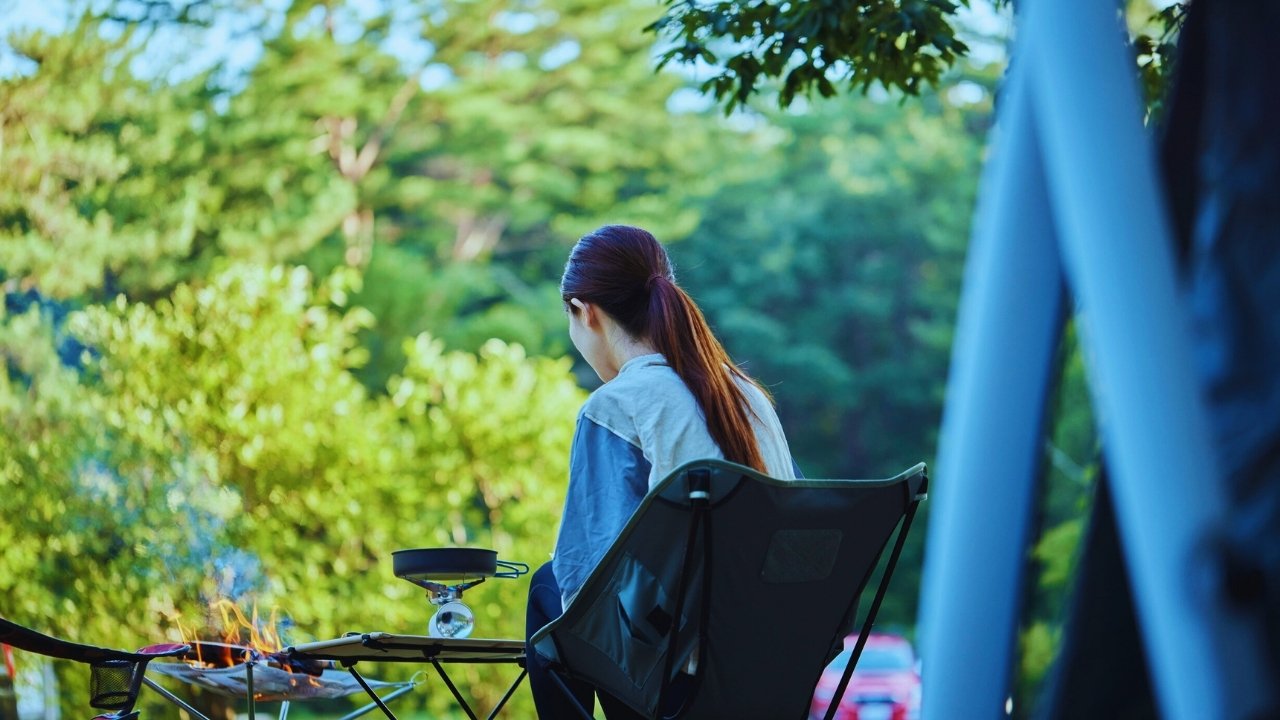
Revolutionizing Speech-to-Text: The Whisper Transc
Discover how Whisper Transcription, powered by OpenAI's Whisper model, is transforming voice-to-text

In the modern era, travel has often been dominated by the pursuit of visibility: the next social media post, the most popular landmark, or a bucket list destination. However, a noticeable shift is occurring in 2025. The travel landscape is increasingly embracing JOMO — the Joy of Missing Out. This trend encourages travelers to step away from the crowded tourist circuits and focus on experiences that offer peace, self-reflection, and genuine engagement with their surroundings.
JOMO is not about rejecting travel or exploration; rather, it’s a philosophy that values intentional choices. Travelers adopting this mindset are prioritizing quality over quantity, experiences over snapshots, and personal growth over societal pressure. In essence, JOMO travel is about embracing the richness of the journey rather than the superficial allure of popularity.
Mindful travelers are now seeking destinations where they can connect with nature, explore cultural nuances, and discover a slower rhythm of life. This evolution is not simply a reaction to overcrowded sites but reflects a deeper desire for meaningful experiences, personal growth, and mental rejuvenation.
The global fascination with quieter, less-explored locations has propelled several destinations into the spotlight. Travelers are increasingly drawn to places that offer serenity, cultural depth, and opportunities for reflection.
Iceland stands out as a quintessential example. Its vast landscapes, including glaciers, volcanic craters, and geothermal hot springs, provide a backdrop for introspection and solitude. Locations such as the Westfjords or Thingvellir National Park allow visitors to disconnect entirely from digital noise, immersing themselves in nature’s grandeur.
Norway is another favorite among those seeking tranquil escapes. The Lofoten Islands and Geirangerfjord exemplify dramatic beauty combined with isolation. Travelers can engage in hiking, kayaking, and photography in environments that encourage calm observation and mindfulness.
Japan, known for balancing ancient traditions with modernity, offers unique retreats like Hakone or the rural regions surrounding Kyoto. Here, travelers can participate in tea ceremonies, visit Shinto shrines, and explore serene gardens, all while embracing the culture’s deep sense of ritual and reflection.
Other destinations, such as Bhutan, Finland’s Lapland region, and remote areas in New Zealand, have also become increasingly popular for those wishing to explore solitude, untouched landscapes, and cultural authenticity. These locations provide experiences that are both immersive and restorative, making them central to the JOMO travel trend.
The 2025 travel narrative is increasingly defined by experiences rather than checklists. Traditional tourism, with its focus on visiting landmarks and ticking boxes, is being replaced by journeys that provide personal enrichment, cultural immersion, and transformative experiences.
Culinary immersion is one such avenue. Travelers no longer merely sample local dishes; they engage with them, learning to prepare traditional meals and understanding the cultural context behind each flavor. Cooking classes, farm-to-table experiences, and dining with local families allow travelers to connect deeply with the heritage and traditions of the place they visit.
Wellness retreats have also surged in popularity. Yoga, meditation, spa treatments, and detox programs in natural settings are central to travel experiences. Travelers are seeking not only relaxation but holistic rejuvenation — physical, mental, and emotional. Locations offering natural beauty combined with wellness programs, such as Bali, Kerala, or Costa Rica, exemplify this intersection of relaxation and self-care.
Cultural workshops enrich journeys by fostering understanding and participation. Travelers can engage in pottery classes in rural Japan, traditional weaving in Guatemala, or dance lessons in West Africa. These hands-on activities allow visitors to develop meaningful connections with local communities while gaining insight into centuries-old traditions.
By emphasizing participation over observation, experiential journeys encourage travelers to slow down, reflect, and engage with their surroundings on a deeper level. These practices cultivate fulfillment and lasting memories, shifting the focus from mere sightseeing to personal enrichment.
Ironically, even as JOMO encourages disconnecting from digital overload, technology plays a pivotal role in facilitating mindful travel. Modern travel platforms, apps, and digital tools allow travelers to discover remote destinations, book unique accommodations, and identify experiences that align with their interests and values.
Instead of using technology merely to document trips or chase viral moments, travelers are leveraging it to enhance mindfulness. For example, apps can help locate serene trails, schedule meditation sessions, or even connect with local hosts for authentic experiences. Technology also aids in planning logistics, enabling travelers to focus on the quality of their experiences rather than getting bogged down by operational challenges.
In 2025, the use of technology in travel has matured. It is no longer about mindless scrolling or constant connectivity but about enabling exploration, safety, and comfort while maintaining a balanced, intentional approach to travel.
For those inspired to adopt the JOMO mindset, there are several strategies to enhance the travel experience:
Prioritize remote destinations: Choose locations off the beaten path that allow for quiet reflection and deep immersion. Seek natural landscapes, small towns, or culturally rich regions where you can experience authenticity without crowds.
Engage in cultural immersion: Participate in local traditions, workshops, and festivals. Learning crafts, cooking regional dishes, or joining community events fosters meaningful connections with local people.
Limit digital exposure: Set clear boundaries for social media, photography, and online communication to focus on the present. Consider digital detox periods during your travels.
Slow down: Rather than attempting to cover multiple destinations in a short time, spend longer in each place. This encourages observation, reflection, and genuine appreciation.
Practice mindfulness: Integrate meditation, journaling, nature walks, or simple contemplative practices to deepen your connection with the journey and your surroundings.
Connect with local communities: Conversations, home stays, and guided experiences with residents provide insights that no guidebook or online review can replicate.
Adopting these practices transforms travel from a checklist-driven activity into a deeply personal, restorative, and enriching journey.
Traveling intentionally and embracing solitude offers significant psychological and emotional benefits. Studies have shown that time spent in quiet, natural environments reduces stress, improves mental clarity, and fosters creativity. Experiencing new cultures mindfully enhances empathy, broadens perspective, and strengthens emotional intelligence.
Furthermore, JOMO travel encourages self-reflection and introspection. Travelers have the space to consider their life priorities, disconnect from societal pressures, and return home with renewed focus and energy. These benefits extend far beyond the immediate vacation, influencing personal growth, relationships, and overall well-being.
By consciously avoiding the pressure of constantly being “in the know” or “connected,” travelers cultivate a sense of satisfaction and joy in the moment. This contrasts sharply with the traditional FOMO-driven approach, where constant comparison and the pursuit of popularity often lead to fatigue and disillusionment.
An important aspect of JOMO travel in 2025 is sustainability. Remote destinations and immersive experiences often require a conscious approach to environmental and cultural preservation. Mindful travelers are increasingly aware of their impact, opting for eco-friendly accommodations, supporting local businesses, and respecting cultural norms and traditions.
By embracing slow travel, tourists reduce the carbon footprint associated with frequent flights and mass tourism. Participating in local conservation projects, engaging with community-led tourism initiatives, and prioritizing eco-conscious operators not only enhances the travel experience but also ensures these destinations remain vibrant for future generations.
Responsible travel is not only about environmental preservation but also about fostering meaningful human connections. Respecting local traditions, valuing indigenous knowledge, and contributing positively to the communities visited align perfectly with the ethos of JOMO.
Several destinations have successfully adapted to the JOMO trend by offering curated experiences designed for mindful travel:
Bali, Indonesia: Beyond the busy tourist hubs, Ubud and surrounding villages offer meditation retreats, rice terrace walks, and traditional art workshops.
Bhutan: Known for its philosophy of Gross National Happiness, Bhutan encourages visitors to engage in spiritual and cultural experiences in serene, natural surroundings.
New Zealand: Remote fjords and small towns provide outdoor adventure, wildlife exploration, and quiet retreats, ideal for travelers seeking solitude.
Italy: Rural Tuscany and Umbria offer vineyard tours, cooking classes, and historic village walks far removed from crowded cities, giving travelers an immersive cultural experience.
These destinations demonstrate that JOMO is not limited to remote wilderness; it can also be applied in culturally rich, slower-paced urban or rural settings.
The rise of JOMO in 2025 represents a transformative approach to travel — one that prioritizes mindfulness, intentionality, and genuine connection over spectacle and overcrowding. By choosing serene destinations, engaging in experiential journeys, and embracing technology mindfully, travelers can find joy, satisfaction, and personal growth in every moment.
Travel in the JOMO era is not about missing out on experiences but about gaining the experiences that truly matter. It is a conscious, restorative, and enriching approach that emphasizes well-being, cultural immersion, and self-discovery. Whether it is exploring remote landscapes, participating in local traditions, or simply enjoying moments of quiet reflection, JOMO travel redefines what it means to journey in the modern world.
For those seeking a deeper, more meaningful travel experience, 2025 is the year to embrace JOMO, slow down, and immerse fully in the wonders of the world without distraction.
The information provided in this article is for informational purposes only. It does not constitute travel advice. Readers should conduct their own research, consider health and safety regulations, and follow local guidelines when planning their travel.